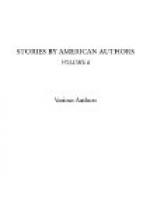to which appeal is so reluctantly made in time of
peace. At Fort——, a lonely
post on the plains, the orders had that morning been
issued for twenty men under Lieutenant Halsey to parade
at 4 P.M., with overcoats, two days’ rations,
and ball cartridges; also for Assistant Surgeon Kesler
to report for duty with the party. Orders as to
destination were communicated direct to the lieutenant
from the post commander, and on the minute the little
column moved, taking the road to the station.
The regiment from which it came had been in active
service among the Indians on the frontier for a long
time, and the officers and men were tried and seasoned
fighters. Lieutenant Halsey had been well known
at the West Point balls as the “leader of the
german.” From the last of these balls he
had gone straight to the field and three years had
given him an enviable reputation for
sang froid
and determined bravery. He looked every inch
the soldier as he walked along the trail, his cloak
thrown back and his sword tucked under his arm.
The doctor, who carried a Modoc bullet in some inaccessible
part of his scarred body, growled good-naturedly at
the need of walking, and the men, enveloped in their
army-blue overcoats, marched easily by fours.
Reaching the station, the lieutenant called the agent
aside and with him inspected, on a siding, a long
platform on which benches had been placed and secured.
Then he took his seat in the station and quietly waited,
occasionally twisting his long blond mustache.
The doctor took a cigar with the agent, and the men
walked about or sat on the edge of the platform.
One of them, who obtained a surreptitious glance at
his silent commander, told his companions that there
was trouble ahead for somebody.
“That’s just the way the leftenant looked,
boys,” said he, “when we was laying for
them Apaches that raided Jones’s Ranch and killed
the women and little children.”
In a short time the officer looked at his watch, formed
his men, and directed them to take their places on
the seats of the car. They had hardly done so,
when the whistle of the approaching train was heard.
When it came up, the conductor, who had his instructions
from Sinclair, had the engine detached and backed
on the siding for the soldiers’ which thus came
between it and the foremost baggage-car, when the train
was again made up. As arranged, it was announced
that the troops were to be taken a certain distance
to join a scouting party, and the curiosity of the
passengers was but slightly excited. The soldiers
sat quietly in their seats, their repeating rifles
held between their knees, and the officer in front.
Sinclair joined the latter, and had a few words with
him as the train moved on. A little later, when
the stars were shining brightly overhead, they passed
into the express-car, and sent for the conductor and
other trainmen, and for Foster. In a few words
Sinclair explained the position of affairs. His
statement was received with perfect coolness, and
the men only asked what they were to do.




